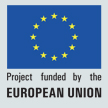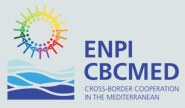Summary and Objectives
The SWMED project will contribute to enhance the strategies aimed at satisfying water and sanitation needs of the population in the participating countries, while reducing water abstraction and improving quality of the water bodies receiving wastewater. Therefore, the principal aim of the project is that to increase the health and quality of life of citizens (improve water and sanitation services) and the environmental conditions of water bodies (decrease water abstraction).
In the whole Mediterranean area there’s the need of new solutions able to provide water and sanitation services reducing water use and wastewater discharge: such solutions are dramatically urgent in southern Mediterranean Countries (such as Palestine and Tunisia), where water shortage may strongly influence human health but are also needed in Northern Mediterranean countries to reduce the environmental impact of water abstraction on aquatic ecosystems. A reduction of water abstraction can be achieved without loss of life-quality by the optimisation of the per capita water need achievable through water saving devices, reuse of treated wastewater, rainwater harvesting, storage and use: the pool of solutions and technologies that allow a more efficient use of water and disposal of human excreta is known as “Sustainable Water Management (SWM) approach” (www.zer0-m.org, www.susana.org)
The ‘Sustainable Water (and wastewater) Management’ (SWM) approach could be applied at household level such as at urban level. At household level SWM means the consideration of the in-house water-cycle beginning at the water consumption, going on with the separate collection of different wastewater fractions which allows a cost-efficient treatment according to their specific characteristics. Treated grey-water (household wastewater not coming from toilet flushing) can be reused for irrigation or for domestic use without health hazards. At urban level SWM means the consideration of the distribution network – reducing its losses -, of the sewage system – that should separate rainwater from wastewater – , and wastewater treatment plant – treated wastewater could be an important resource for less demanding uses, such as agriculture. What’s more important, SWM solutions and techniques could be adapted to very different contexts: from developed inner cities equipped with “western style” sanitation systems, to rural villages without water distribution networks and sanitation facilities.
To reach such a relevant objective a cross-border dimension is preferred, aiming at sharing opinions, knowledge, skills, previous experiences and, nevertheless, envisaging a common development of all the Mediterranean Area. In the frame of the SWMED Project, thus, Northern and Southern Mediterranean public bodies (Ministries, Regions, Provinces, Water Authorities) will work together supported by the technical partners (such as IRIDRA, CERTE and PHG) to achieve a SWM system and suitable water policy that take in account the on-going European activities, all available innovative tools, other than, the different contexts and socio-economic backgrounds.
Therefore, in each involved Country, the following results will be reached:
1) The creation of Regional/local “water tables” – a kind of participatory boards including all stakeholders relevant for the water issue – to be active beyond the end of the project;
2) Define SWM “tailor-made” solutions for different settlement typology to be applied in regional and local water policy: a kind of guidelines of SWM good practices
3) Regional water policy paper agreed by the participants to the water tables: policy papers will be the way by which all key stakeholders and decision makers commit themselves to introduce SWM concepts in water and urban planning tools;
4) To activate dissemination activities on SWM concepts at national (Information campaigns, SWM houses) and trans-national (Website, conferences) level to be kept alive far beyond the project lifespan.


